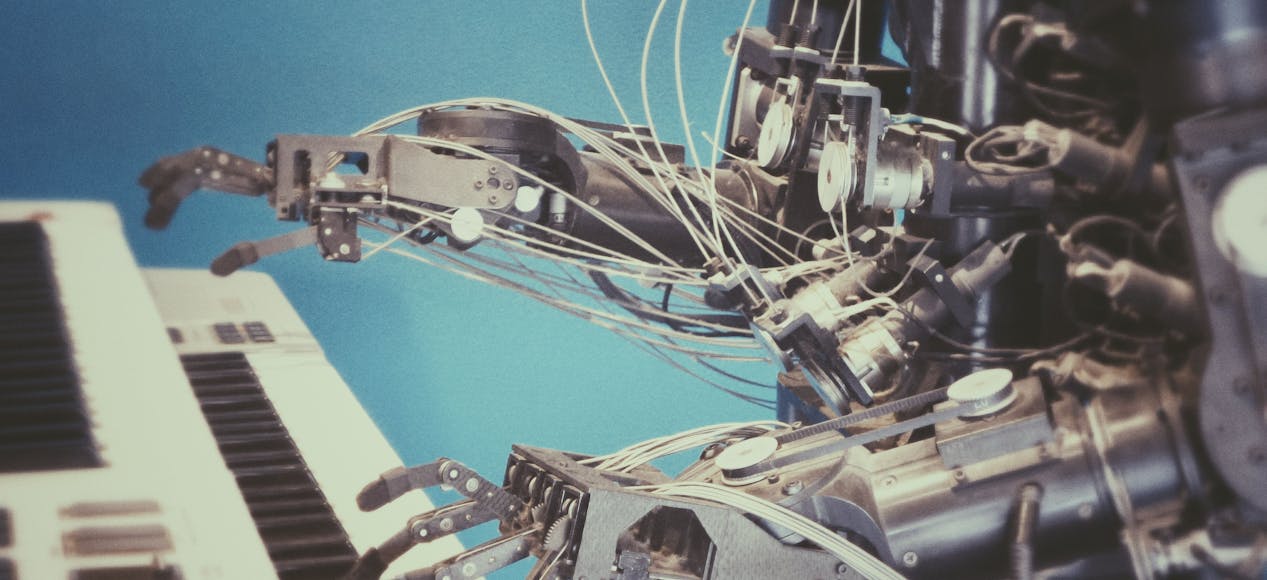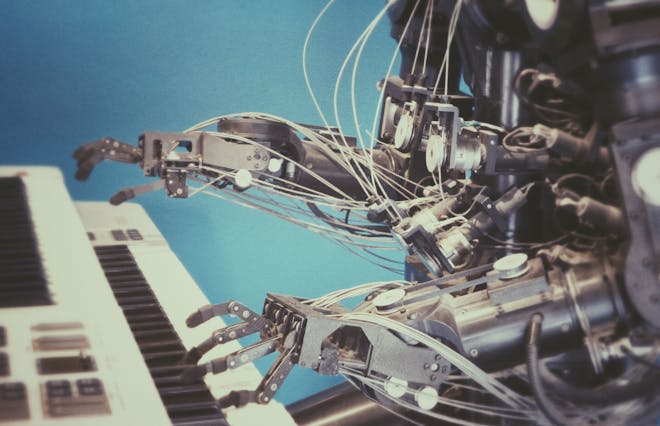The Consequences of AI for Human Personhood and Creativity: A Perspective from Reimagine Board Member, Jonathan Lipps



July 03, 2023
Creativity is sacred, but it’s in danger. At Reimagine, we believe in the transformative power of creativity. We view it not as a rare gift but as an inherent human trait that can be nurtured, broadened, and channeled toward personal growth and communal wellbeing. In today's rapidly evolving technological landscape, the intersection of AI with our creative selves sparks deep curiosity and demands thoughtful reflection.
Our board member, Jonathan Lipps, who serves as the Senior Director of Automation Technologies at HeadSpin, has penned a compelling piece on this very topic. In his blog post, "The Consequences of AI for Human Personhood and Creativity," Jonathan delves into the societal and personal implications of AI technologies, such as ChatGPT. He raises pivotal questions, providing insights that resonate with our shared vision of growth and transformation.
–
Here's an excerpt from Jonathan's article:
“In the past, as I’ve thought about the nature of modern technology and its impact on human life, I’ve generally felt one step ahead of the technological developments under consideration. The philosophical tools at our disposal to analyze and criticize technology felt effective, if only in principle. Again in principle, it seemed that if enough people just took the time to think and reflect critically about technology, we might have a chance to encourage a more humane trajectory for it. But with the recent and rapid onset (onslaught?) of new AI technologies and platforms (ChatGPT and other large language models—”LLMs”—foremost among them), that feeling of theoretical manageability has evaporated. It was no doubt a naïve feeling to begin with, and is now replaced by a sense of being adrift, at sea, with no sight of land amidst the churning waters of technological change.
“It has therefore been difficult for me to develop a practical framework for engaging with new technologies like ChatGPT. I already have a theoretical framework for understanding new technologies, informed by various thinkers (this is a long list of writers including standouts like Jacques Ellul or Albert Borgmann). This theoretical framework provides a straightforward analysis of AI technologies, just like it does for earlier technologies: the type of AI I have in mind (however it is instantiated, e.g., a model constituted by training data) is a device that reliably makes a certain good (in this case, novel, creative media) more efficiently available. But AI technologies themselves, as a force impacting culture, are already a runaway train. Trying to decide what to do about them is much more difficult than simply understanding what they are (understanding what they are as mere technologies, I mean). To be clear, I’m not attempting to consider whether AI systems can be conscious or actually “intelligent”. That is an extremely difficult and interesting set of philosophical and scientific questions, but what I’m trying to discuss here doesn’t depend on the ontological status of AI agents. (Of course, if it turns out that AI systems are “persons” in some sense, then we have a whole different set of awful and perplexing situations we find ourselves in, such as the ethics of how to treat these AI persons).
“All that to say, as a result of my own aforementioned confusion and perplexity, I want to approach this critical discussion of AI not primarily from a theoretical or philosophical perspective, but from my own particular human (which is to say emotional) perspective. I’ll put it as bluntly as I can: the recent developments in AI make me sad, and worried. I understand that in saying these things I am departing from the general sentiment of excitement and possibility that surrounds the AI space, and probably deeply offending some people besides. So I’ll explain further: AI as a set of technical achievements does not make me sad. The ability of ChatGPT 4 (or 5, or 2000) to string together so many words that make so much sense is incredible, and does not itself make me sad. I myself am a technologist and delight in technological achievements, both my own and those of others. I’ve implemented machine learning training algorithms in the past, and understand, in some basic way, how these things work from a technical perspective. I am in total awe of what happens when you throw all the data of the entire Internet into a machine learning model. I would not have expected it to work half so well! But…”
For a deeper dive into these themes and insights, we invite you to visit Jonathan's blog to read the complete article.
–
Jonathan’s reflections serve as a reminder of the need for conscious engagement with technology, particularly as it intertwines with our creative selves. We are encouraged to continually return to the essence of our humanity, valuing our creativity as a deeply personal expression of our experiences, emotions, and viewpoints.
At Reimagine, we are dedicated to cultivating an environment where creativity thrives, acting as a catalyst for individual and communal growth. We believe that while technology can be a powerful tool, it should always be guided by the highest human values. As we continue to explore the intersection of AI and creativity, we do so with discernment and humility, ensuring our creative selves remain at the center of our journey.
We welcome you to join us in this ongoing dialogue about the role of technology in our lives, our creativity, and our growth. Let's continue to reimagine together.
About the Author
Jonathan Lipps is a technologist, philosopher, linguist, musician, theologian, and photographer. He is the Senior Director of Automation Technologies at Headspin and has an academic background in philosophy, linguistics, and theology. When he's not leading the Automation Technologies team at HeadSpin, you can find him writing on the philosophy of technology, recording music, going for a run, doing yoga, or playing nerdy games like D&D. He attended Stanford and Oxford Universities and currently resides in Vancouver, BC.

